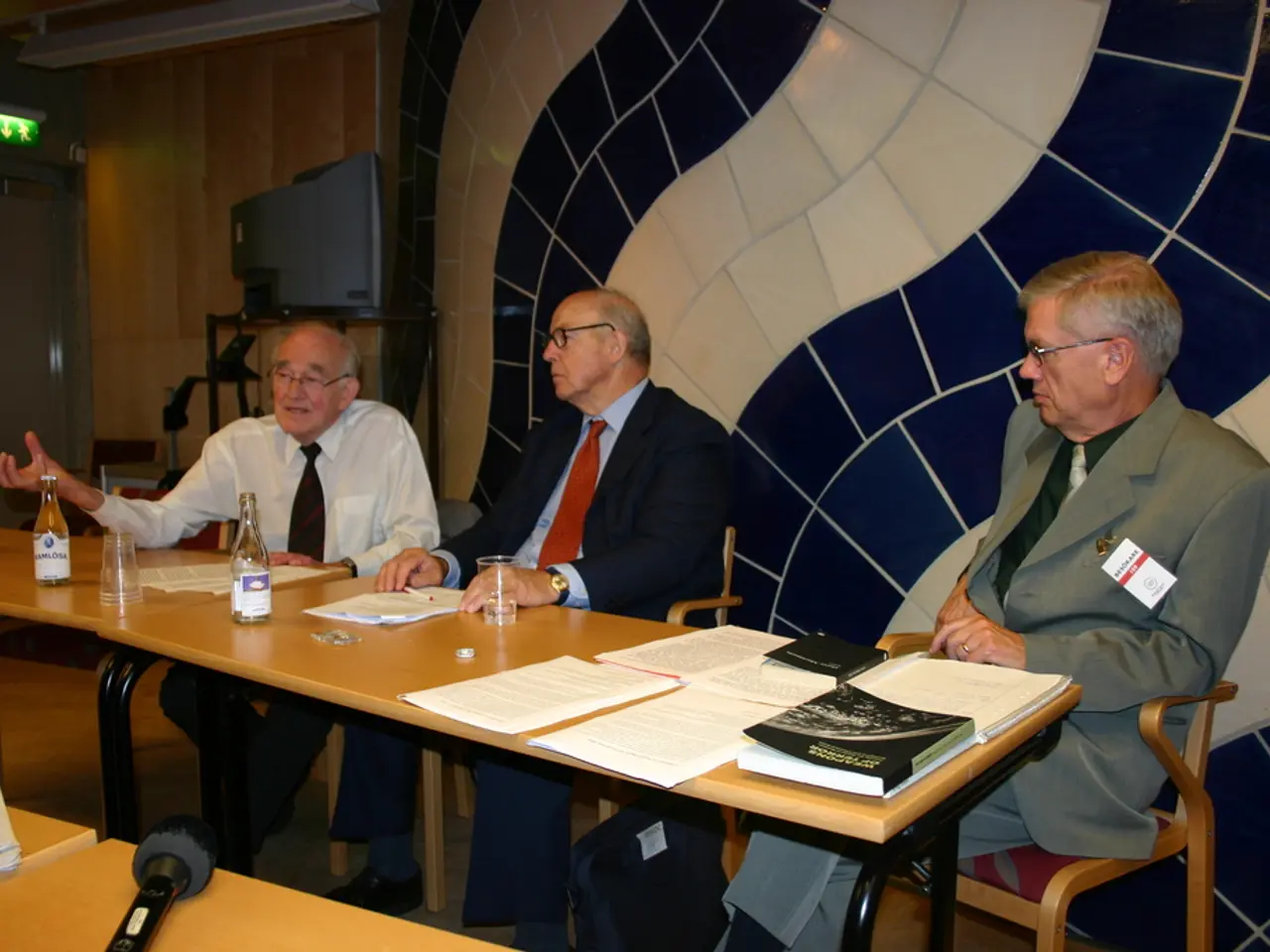Encouraging agreement in arbitration settings: Should the court intervene now?
Facilitating Settlement in International Arbitration: A Changing Landscape
International arbitration is increasingly embracing techniques to guide parties towards settlement options, as evidenced by the evolving practices at various jurisdictions.
The ICC Commission has reported concerns from some in-house counsel about arbitrators who raise settlement issues later in the proceeding, potentially questioning their neutrality. However, it is essential to note that any settlement conference chaired by an arbitrator should be subject to "settlement privilege," meaning the tribunal could not refer to or rely on those discussions when making an award.
Procedural rules at key arbitral institutions now reflect this change in perspective towards settlement facilitation. For instance, the ICC Arbitration Rules (2021) empower the arbitrator to encourage parties to consider settlement of all or part of the dispute. Similarly, the SIAC Arbitration Rules (2025) allow the tribunal to consult with the parties on the potential for settlement at the first case management conference.
The LCIA Arbitration Rules (2020) do not include any specific provision empowering the tribunal to play an active role in relation to settlement. Nevertheless, subsequent procedural meetings provide an opportunity for the tribunal to confirm whether parties' early positions have changed, and to offer guidance on the issues for determination in a way that causes parties to reassess their expectations.
Tribunals are generally reluctant to set down a mediation window unless both parties agree. However, the tribunal can include a window for mediation within the procedural timetable, ensuring that the parties will have a dedicated opportunity to explore amicable resolution at a moment when the dispute should be ripe for settlement.
The first case management conference can be a useful opportunity for the tribunal to draw parties' attention to settlement considerations and develop a procedural timetable that accommodates appropriate case management techniques. A so-called "Kaplan hearing," developed by arbitrator Neil Kaplan, is one such form of mid-stream conference - held after the first round of written submissions, but before the merits hearing - at which the tribunal hears both sides open their cases and present skeleton arguments.
While the core techniques for facilitating settlement in international arbitration are similar across jurisdictions, there are some differences in how these are applied or viewed. Common law systems often allow for more flexibility in procedural matters, which can be leveraged to encourage settlement discussions. Techniques like the Kaplan hearing are more common in jurisdictions with a strong adversarial tradition, as they offer a structured opportunity for parties to reassess their positions.
In contrast, civil law systems tend to emphasize written submissions over oral hearings, which can influence how settlement discussions are integrated into the arbitration process. There may also be a stronger emphasis on legal formality and structure, which can shape the way settlement efforts are pursued within the framework of arbitration proceedings.
Despite these nuances, arbitration's international nature often leads to a blend of practices from both common and civil law traditions, resulting in a hybrid approach that focuses on neutrality and flexibility to facilitate settlement. The ACICA Arbitration Rules (2021) require the tribunal to raise settlement options at a preliminary meeting, while the HKIAC Arbitration Rules (2024) allow the tribunal to suspend the arbitration if the parties wish to pursue other means of settlement. The SIAC Rules also empower the tribunal to make necessary directions, including a suspension of proceedings, for the parties to adopt amicable dispute resolution methods.
In 2023, the ICC Commission on Arbitration and ADR published guidance on steps arbitrators can take to facilitate settlement. Arbitral tribunals in various jurisdictions are increasingly comfortable guiding parties towards settlement options, demonstrating a shift towards a more proactive role in promoting amicable resolutions.
Arbitral tribunals are now empowered by rule changes to encourage parties to consider settlement of all or part of a dispute, as seen in the ICC Arbitration Rules (2021) and SIAC Arbitration Rules (2025). Furthermore, in international arbitration, business negotiations around settlement can be guided by techniques such as the Kaplan hearing, which offers parties an opportunity to reassess their positions mid-stream.
In finance, the international landscape of arbitration is becoming more receptive to settlement processes, with tribunals in various jurisdictions taking on a more proactive role in promoting amicable resolutions, as outlined by the ICC Commission on Arbitration and ADR in 2023.




